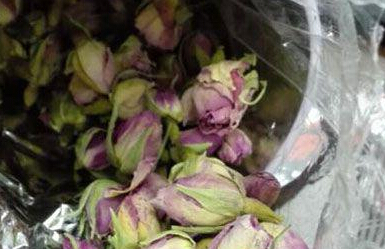In daily life, roses are very common flowers, but they are also a type of Chinese herbal medicine, often found in pharmacies and tea shops. However, are we all aware of the effects of rose tea? What are the benefits of roses, and how can they be brewed to maximize their nutritional value? Let’s explore these questions together.
Rose tea is a type of scented tea among China’s reprocessed tea categories, made by scenting tea leaves with fresh rose flowers. The tea base used for rose tea can be black tea or green tea. Besides roses, flowers like roses and modern hybrid teas with sweet and rich fragrances can also be used for scenting tea. Half-opened roses are considered the best in quality. The finished tea has a sweet and strong aroma with a pleasant taste. The production process of rose tea involves processing the tea base and fresh flowers, scenting and blending, separating the flowers, reheating, and final scenting.
Nutrition
Roses are rich in vitamins A, C, B, E, and K, as well as tannic acid, which can help improve endocrine disorders and aid in relieving fatigue and healing wounds.
They regulate qi and blood, address women’s physiological issues, promote blood circulation, beautify the skin, regulate menstruation, act as a diuretic, soothe gastrointestinal nerves, prevent wrinkles, protect against frostbite, and enhance beauty. When the body is tired and sore, using rose tea for massage is also quite suitable.
Dried rose buds can be used by taking 5 to 7 flowers, paired with a small handful of tender green tea and three pitted red dates. Brewed with boiling water daily, this tea can reduce heart fire, maintain energy, and increase vitality. Long-term consumption can also give the complexion a rosy glow and maintain youthful beauty.

Apple blossoms can be used to nourish blood or relieve neuralgia, and when paired with roses, they create a unique flavor.
Rose tea has a mild nature, reduces internal heat, regulates qi and blood, promotes blood circulation, and beautifies the skin. It also helps eliminate fatigue, heal wounds, protect liver and gastrointestinal functions, and long-term consumption aids in promoting metabolism.
Beauty and Skincare
Daily consumption of rose tea can beautify the skin and keep you youthful. Traditional Chinese medicine believes that facial complexion is closely related to the body’s qi and blood. Rose tea has the effects of promoting qi and blood circulation and harmonizing internal organs. Regular consumption can gradually improve a dull complexion and significantly reduce facial spots. Therefore, those with a dull complexion or troubled by spots can take 15 grams of roses daily during menstruation. Those with qi deficiency can add 3-5 red dates or 9 grams of American ginseng, while those with kidney deficiency can add 15 grams of wolfberries. Used roses should not be discarded; they can be mashed into a paste and applied to the face before bed, washed off with warm water after drying. Long-term use can moisturize the skin, promote blood circulation, eliminate spots, and improve complexion.
Relieving Depression
Traditional Chinese medicine believes that roses have a mild medicinal nature, capable of regulating qi, activating blood, soothing the liver, and relieving depression. They have calming, soothing, and antidepressant effects. Women often experience emotional irritability before or during menstruation, and drinking rose tea can help regulate this. With increasing work and life pressures today, even outside menstruation, drinking more rose tea can soothe and stabilize emotions.
Regulating Menstruation and Relieving Pain
Rose tea has the effects of promoting blood circulation, removing stasis, regulating menstruation, and relieving pain. For those with severe menstrual pain, in addition to drinking rose tea, during pain episodes, 200 grams of fresh roses can be boiled into a concentrated paste, spread on four layers of gauze, and applied warm to the navel, secured with adhesive tape, and changed daily. Due to its blood-activating properties, those with heavy menstrual flow should avoid drinking rose tea during their period.